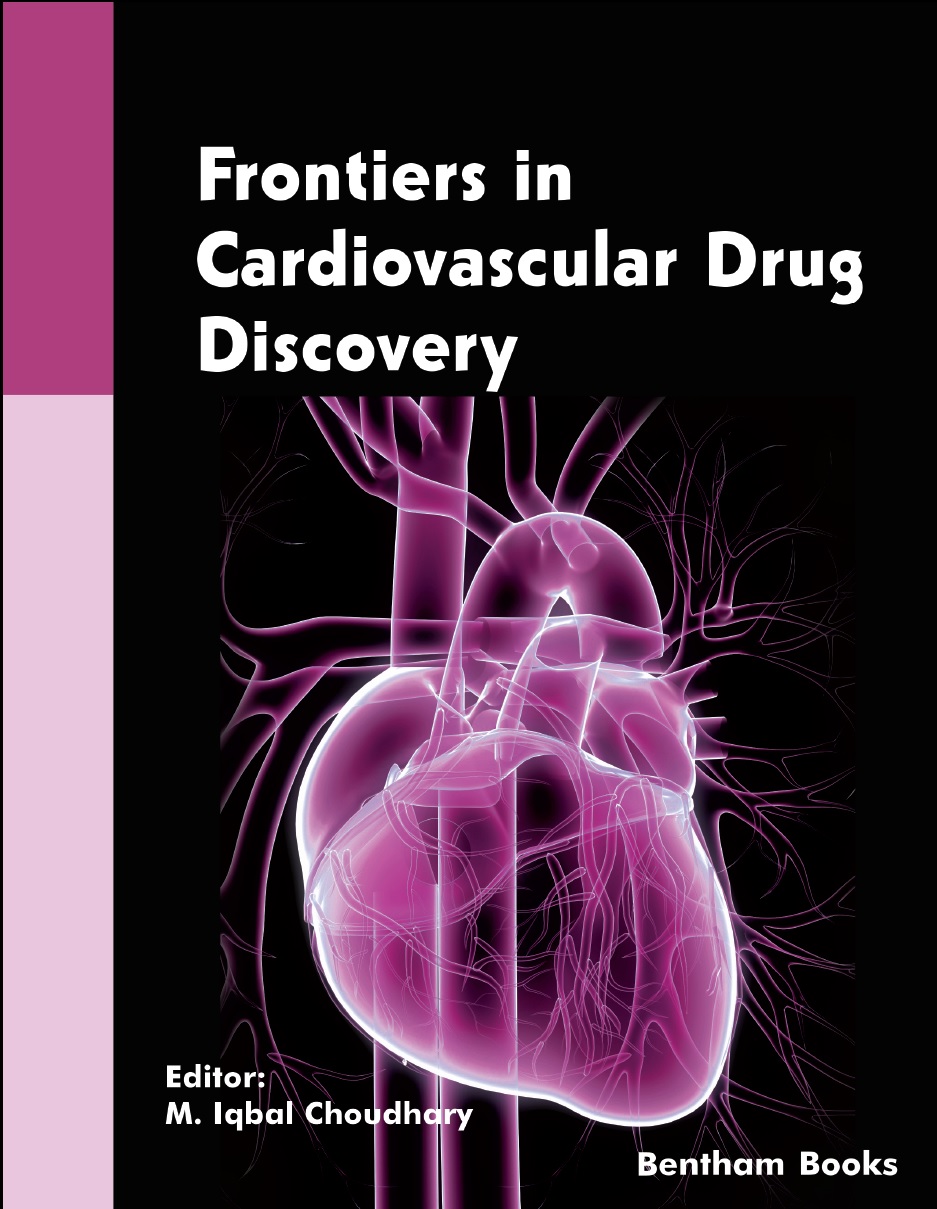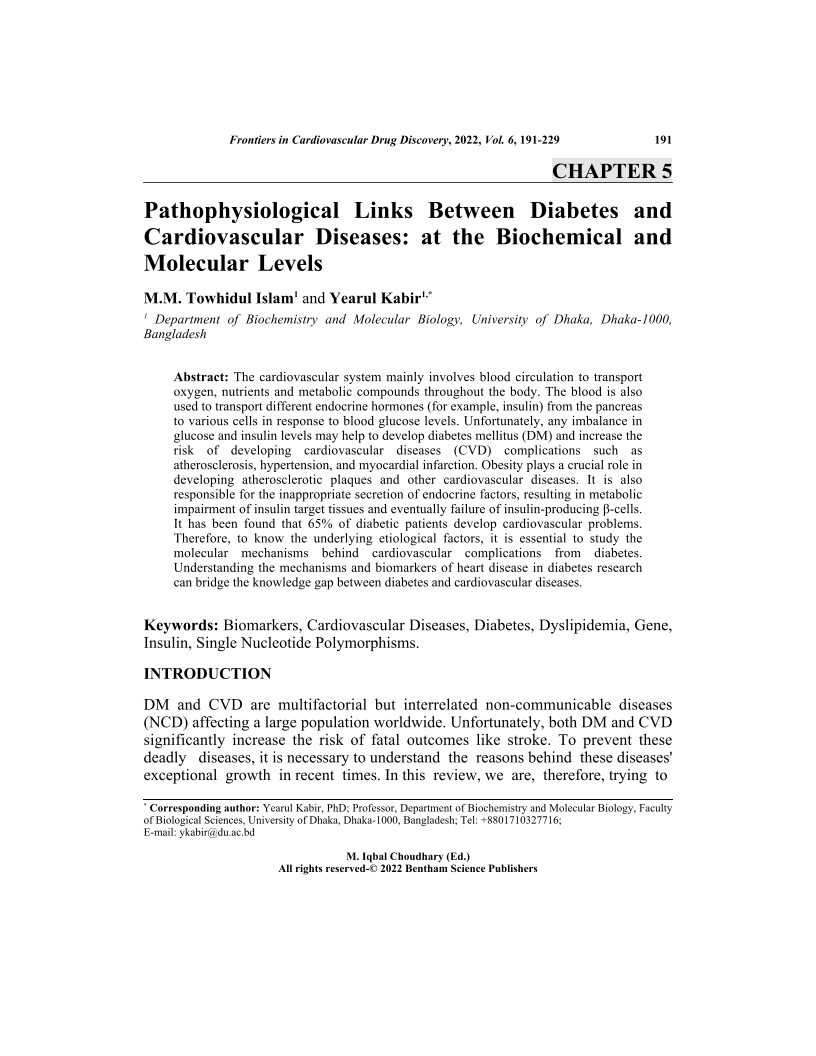Pathophysiological Links Between Diabetes and Cardiovascular Diseases: at the Biochemical and Molecular Levels

- Authors: M.M. Towhidul Islam1, Yearul Kabir2
-
View Affiliations Hide Affiliations1 Department of Biochemistry and Molecular Biology, University of Dhaka, Dhaka 1000, Bangladesh 2 Department of Biochemistry and Molecular Biology, University of Dhaka, Dhaka-1000, Bangladesh
- Source: Frontiers in Cardiovascular Drug Discovery: Volume 6 , pp 191-229
- Publication Date: November 2022
- Language: English
Pathophysiological Links Between Diabetes and Cardiovascular Diseases: at the Biochemical and Molecular Levels, Page 1 of 1
< Previous page | Next page > /docserver/preview/fulltext/9789815036909/chapter-5-1.gif
The cardiovascular system mainly involves blood circulation to transport oxygen, nutrients and metabolic compounds throughout the body. The blood is also used to transport different endocrine hormones (for example, insulin) from the pancreas to various cells in response to blood glucose levels. Unfortunately, any imbalance in glucose and insulin levels may help to develop diabetes mellitus (DM) and increase the risk of developing cardiovascular diseases (CVD) complications such as atherosclerosis, hypertension, and myocardial infarction. Obesity plays a crucial role in developing atherosclerotic plaques and other cardiovascular diseases. It is also responsible for the inappropriate secretion of endocrine factors, resulting in metabolic impairment of insulin target tissues and eventually failure of insulin-producing β-cells. It has been found that 65% of diabetic patients develop cardiovascular problems. Therefore, to know the underlying etiological factors, it is essential to study the molecular mechanisms behind cardiovascular complications from diabetes. Understanding the mechanisms and biomarkers of heart disease in diabetes research can bridge the knowledge gap between diabetes and cardiovascular diseases.
-
From This Site
/content/books/9789815036909.chapter-5dcterms_subject,pub_keyword-contentType:Journal -contentType:Figure -contentType:Table -contentType:SupplementaryData105

